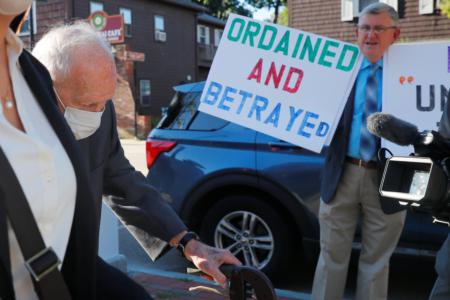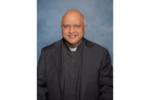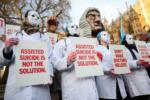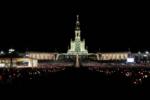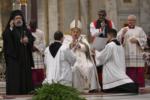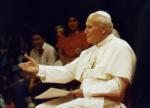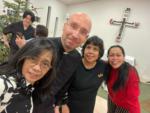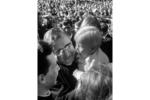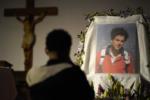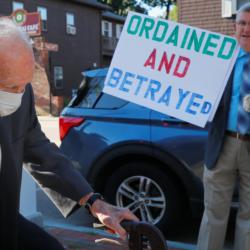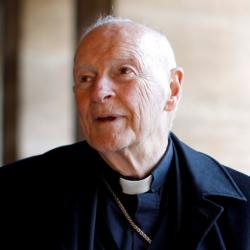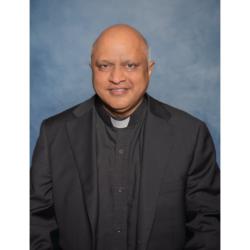Bishops’ letter urges vote on marriage amendment
BOSTON -- In a letter sent individually to state legislators Dec. 21, the four bishops of Massachusetts urged the lawmakers to bring the marriage amendment to a vote on Jan. 2.
Legislators have twice delayed the vote by recessing the joint session of the state Legislature. The next meeting of the constitutional convention is scheduled for Jan. 2, the final day of the legislative session, at 2 p.m. Traditional marriage supporters, including the coalition behind the citizens initiative VoteOnMarriage.org, will gather outside the Statehouse on Jan. 2 at 11 a.m.
Cardinal Seán P. O’Malley of the Archdiocese of Boston as well as the bishops from the dioceses of Fall River, Springfield and Worcester said in the letter that legislators, who have sworn to uphold the state constitution, have an obligation to vote.
Not doing so will deny many voters the opportunity to have their voices heard, they said.
“Some legislators seek to use procedural maneuvers to avoid voting on the marriage amendment in order to silence the debate,” they said. “Those who support the consensus definition of marriage as the union of man and woman are being told that their views are not worthy in Massachusetts.”
Edward Saunders, director of the Massachusetts Catholic Conference, added in an interview with The Pilot on Dec. 19 that the legislators are “trying to derail the democratic process.”
“We call upon the people to continue to contact their legislators and urge them to let the people vote,” he said.
In addition, anyone who is available should come to the Statehouse on Jan. 2 to show their support for the marriage amendment, he said.
The citizens initiative petition drive garnered 170,000 signatures, the largest number in state history. In order to move forward, the amendment needs to receive 25 percent of the vote in two consecutive joint sessions of the Legislature before it can appear on the ballot in 2008. If successful, it would amend the constitution to define marriage as the union between one man and one woman. It would not invalidate existing same-sex marriages nor rule out the possibility of civil unions.
The Legislature has met in joint sessions twice this year, each time recessing without taking a vote on the marriage amendment. On July 12 the legislators voted 100-91 to recess until Nov. 9, two days after general election. On Nov. 9 the joint session of the Legislature voted 109-87 to recess until the last day of the legislative session.
Supporters of the amendment have maintained that they are confident that if allowed to come to a vote, the amendment has the support and would garner the 50 votes necessary to move forward.
On Nov. 19 Gov. Mitt Romney and VoteOnMarriage.org held a rally on the steps of the Statehouse to urge legislators to act on the marriage amendment. Boston Police estimated that 5,000 people, the vast majority traditional marriage supporters, gathered for the rally. Several regional rallies were later held throughout the commonwealth.
Romney and 10 other plaintiffs filed a lawsuit with the Supreme Judicial Court on Nov. 24. They asked the state’s highest court to bypass the Legislature if elected representatives fail to vote on the marriage amendment.
A hearing for the lawsuit was held before the entire court on Dec. 20 at 9 a.m.
Kris Mineau, spokesperson for VoteOnMarriage.org, was present at the hearing and said that he anticipates a decision on the matter before Jan. 2.
“We were very pleased with the level of interest exhibited by all the justices and their concern about the legislative process not working,” he said. “Even the attorney general agreed that the Legislature is obligated to vote in accordance with the constitution, so there seemed to be very little doubt either in the court or the lawyers on both sides that the Legislature was bound by the constitution to have a full up or down vote on the amendment.”
VoteOnMarriage.org filed a separate lawsuit on Dec. 13 in federal court, seeking damages on the grounds that lawmakers have violated the right of voters to petition their government, found in the First Amendment of the United States Constitution.
